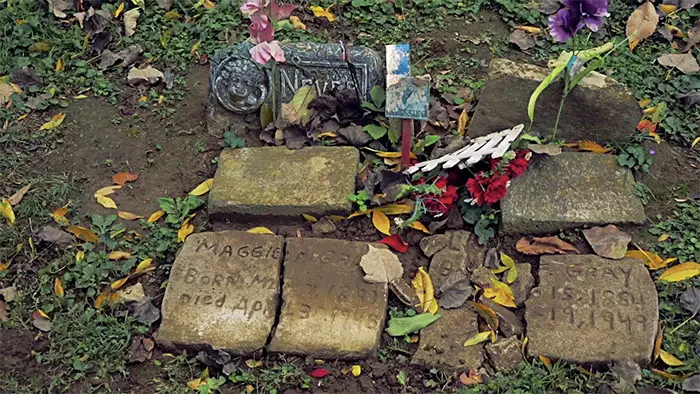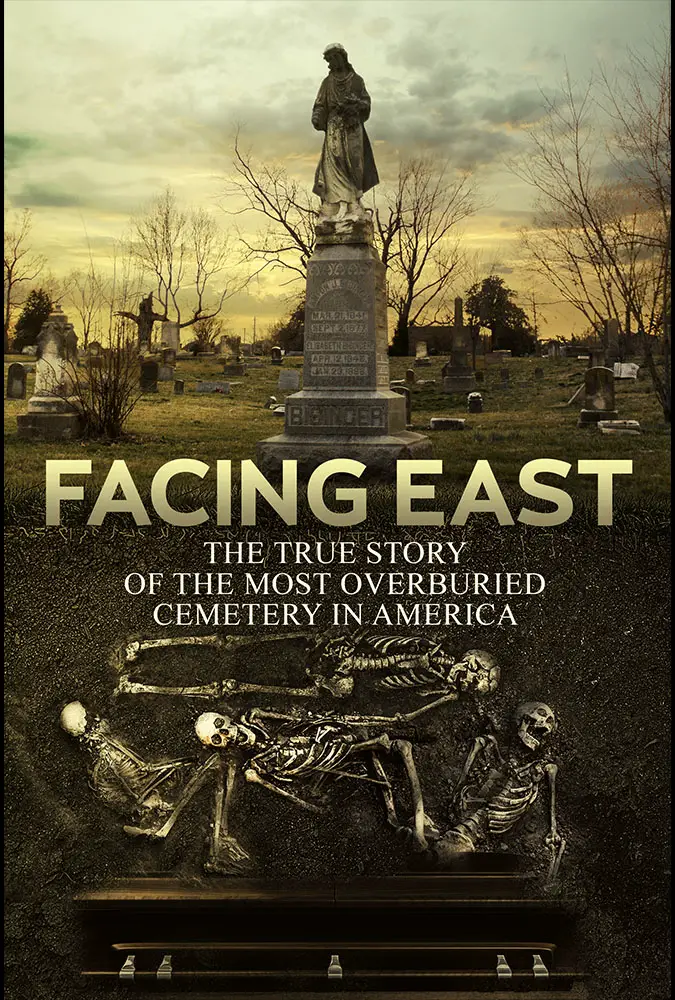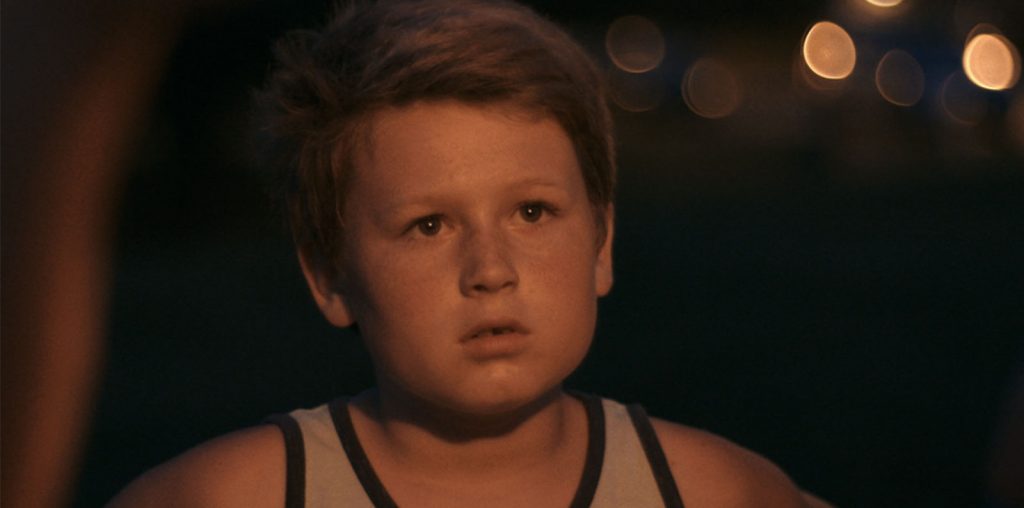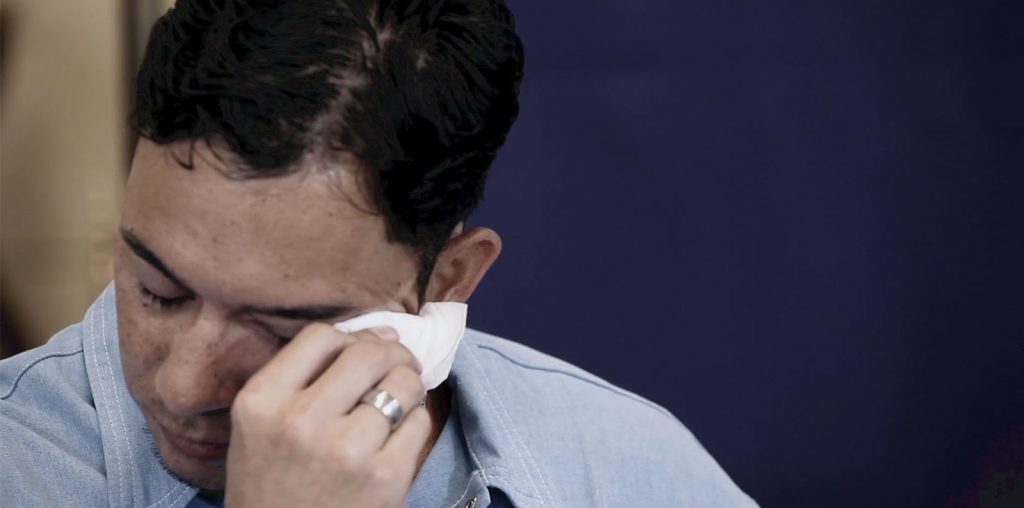
Imagine laying your loved ones down one last time, with the assumption that this would be their final resting place. But instead, they’re actually sharing their cemetery plot with five or more strangers. Starting in 1858, at the Eastern Cemetery in Louisville, Kentucky, this was a reality. This horrifying practice was not brought to light until 1989. Facing East tells the story of nightmares becoming reality as families are forced to revisit the gravesites of their loved ones to exhume the corpses and relocate them to a place where their bodies and souls would be respected (and they would no longer be taken advantage of financially).
Writer-director Tommy Baker creates an interesting story that on the surface appears a bit ridiculous, but turns out to be incredibly compelling. Right off the bat, Baker throws audiences into the courtroom as Eastern Cemetery faces legal consequences for their misconduct and their unbelievable mismanagement. Baker knows that introducing viewers to the ensuing legal battles over said issues is the best way to attract large audiences and appeal to their ideas of an irresistible story. He understands his audience and builds his documentary with them in mind, making the appeal of Facing East strong and broad.

“…nightmares becoming reality as families are forced to revisit the gravesites of their loved ones to exhume the corpses…”
The ridiculousness of the saga brings to mind Netflix’s Tiger King, only with enjoyable and articulate characters. Baker uses the large group of interviewees to paint a horrific picture of bodies being buried on top of others. The choices he makes regarding his subjects make the documentary captivating and enjoyable. Something is often lost in translation in documentaries when subjects attempt to convey information about a particular story. Viewers may find it difficult to appreciate the content due to the subjects’ inability to relate the necessary information to their audience. Instead, Baker’s choices in Facing East are impeccable, as each speaker is capable of being articulate, engaging, and thorough in their explanations of the horrid situation.
Viewers have become numb to many things as cinema often produces far-fetched stories that appeal to the senses of said audience members. Baker and his subjects develop a sense of intensity throughout the film. Their testimonies and appeal to emotion create a bond in which audiences can empathize with the families attached to these stories. Another issue that causes problems for documentaries is that what interviewees say can appear scripted, and therefore loses its impact. Again, Baker’s subjects (whether their lines were scripted or not) appear genuine. They seem to have a connection to the stories that they tell, making the appeal of the movie even more potent.
Facing East moves swiftly through its tale of deceit and creates a sense of urgency that mirrors the story being told. Baker’s ability to convey the emotional weight of the proceedings is incredible and enjoyable. He creates a film that, through his interviews, conveys a sense of realism that many documentaries lack. His finished product will appeal to many and leaves them with the understanding that Baker’s potential in the film world is immeasurable.

"…moves swiftly through its tale of deceit and creates a sense of urgency that mirrors the story being told."


